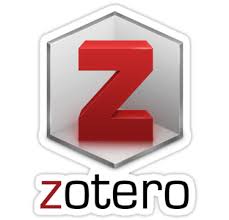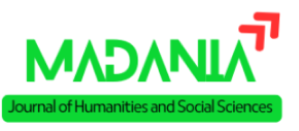Analisi Inovasi Produk Kreatif Ecobrick sebagai Green Economy dalam Perspektif Etika Produksi Islam
DOI:
https://doi.org/10.59240/kjsk.v5i1.146Keywords:
Green Economy, Islamic Production Ethics, EcobrickAbstract
This study analyses ecobrick creative product innovation as a green economy in the perspective of Islamic production ethics with a case study in Ambal Ambil Village, Pasuruan. This research is motivated by the unrest arising from the increasing plastic waste but still low management of the plastic waste problem which indicates that the level of recycling of plastic waste by the community in Indonesia is still low. The selection of Ambal Ambil Village as the object of research because this village applies solutions related to the problem of plastic waste into creative ecobrick products. The purpose of the research is to study, analyse, and identify methods, efficiency techniques, the application of Islamic production ethics, as well as the level of awareness and community participation in environmental sustainability and local economic empowerment. This research method uses qualitative research with a phenomenological approach. This study shows that ecobricking is able to reduce the volume of plastic waste in the community and reduce the impact of environmental pollution, thus contributing to environmental sustainability. On the other hand, ecobrick management is conducted transparently and holds the principles of Islamic production ethics for the common good. The implementation of ecobricking involves the participation of the community of Ambal Ambil Village, which has the effect of increasing public awareness of not littering. This research contributes to supporting ecobricks as a creative solution to the plastic waste problem
References
Abdul Ghofur. 2025. Green Economy Pada Perspektif Giat45. Desa Ambal Ambil, Kejayan, Pasuruan, Jawa Timur: Hasil Wawancara Pribadi.
Adolph, Ralph. 2016a. “Teori Ekonomi Islam,” no. 9: 1–23.
———. 2016b. Teori Ekonomi Mikro Islam.
Asih, Hayati Mukti, and Syifa Fitriani. 2018. “Penyusunan Standard Operating Procedure (SOP) Produksi Inovasi Ecobrick.” Jurnal Ilmiah Teknik Industri 17 (2): 144. https://doi.org/10.23917/jiti.v17i2.6832.
Bella Tri Andriastuti, Arifin, dan Laili Fitrian. 2019. “Potensi Ecobrick Dalam Mengurangi Sampah Plastik Rumah Tangga Dikecamatan Pontianak Barat.” Teknologi Lingkungan Lahan Basah 1: 9.
BPS. 20224. “Jumlah Penduduk Pertengahan Tahun (Ribu Jiwa), 2022-2024.” BADAN PUSAT STATISTIK. 20224. https://www.bps.go.id/id/statistics-table/2/MTk3NSMy/jumlah-penduduk-pertengahan-tahun--ribu-jiwa-.html.
David Wlliam pearce, Anil Markandya, Edward Barbier. 1989. Blueprint of a Green Economy. https://books.google.co.id/books/about/Blueprint_for_a_Green_Economy.html?hl=id&id=jMTupDDeWZ8C&redir_esc=y.
Fataron, Zuhdan Ady. 2022. “Elaborasi Green Marketing Dan Islamic Marketing Ethics.” Ilmiah Ekonomi Islam 1: 10.
hariyanto, Mubaraah Azizah. 2021. “Impelementasi Etika Bisnis Islam Terhadap Konsep Green Economics.” Kajian Ilmu Hukum 10: 17.
Illsley, C. 2017. “Top Bottled Water Consuming Countries.” WorldAtlas. 2017. https://www.worldatlas.com/articles/top-bottled-water-consuming-countries.html.
Moehammad Fuad Hasan. 2025. Green Economy Pada Perspektif Giat45. Desa Ambal Ambil, Kejayan, Pasuruan, Jawa Timur: Hasil Wawancara Pribadi. 27 Februari 2025.
Moleong Lexy J. 2012. “Metode Penelitian” 4: 1. (Bodgan & Taylor, 1975; Meolong, 2012; Murdiyanto, 2020).
Muh. Dian Nur Alim Mu’min dan Rahmawati muin. 2024. “Telaah Konsep Green Ekonomic Dalam Implementasi Etika Bisnis Islam.” Journal of Management and Innovation Entrepreunership 1: 10.
Muhammad Hudori. 2025. Proses Pengelolaan Sampah Plastik Menjadi Ecobrick Di Desa Ambal Ambil Pada Perspektif Giat45. Desa Ambal Ambil, Kejayan, Pasuruan, Jawa Timur: Hasil Wawancara Pribadi. 27 Februari 2025.
Muhammad Sofi. 2025. Pemanfaatan Sampah Plastik Menjadi Ecobrick Pada Perspektif Giat45. Desa Ambal Ambil, Kejayan, Pasuruan, Jawa Timur: Hasil Wawancara Pribadi. 27 Februari 2025.
Nizar, Muhammad, and Antin Rakhmawati. 2022. “60 Manfaat Expo.”
Risma Tiasti Ningrum, Ervitri Marheni, Nouval Hanif Alauddin dan Rafika Bayu Kusumandani. 2022. “Pembuatan Ecobrick Sebagai Barang Tepat Guna Dan Mengurangi Sampah Plastik.” Bina Desa 4: 7.
Silfi Qotrun Nahda, Aslikhah, and Sukamto. 2024. “Analisis Persaingan Bisnis Pasar Tradisional Wonokusumo Surabaya Dengan Pasar Online Platfrom Shopee: Perspektif Mekanisme Pasar Dalam Islam.” Al-Kharaj: Jurnal Ekonomi, Keuangan & Bisnis Syariah 6 (9): 5808–18. https://doi.org/10.47467/alkharaj.v6i9.2511.
Sukamto. 2017. “Analisis Produktivitas Perempuan Fatayat NU.” Jurnal Ekonomi Islam 8: 279.
———. 2018. “Menuju Era Baru Wakaf Tunai (Sebagai Inovasi Finansial Islam Dalam Mensejahterakan Umat).” Malia: Jurnal Ekonomi Islam 9 (2): 193–212.
Tetty Marta Linda Dkk. 2021. ECOBRICK Solusi Penanganan Sampah Plastik. CV. Graf Literasi.
Warta Geospasial. 2020. “Bahaya Sampah Plastik.” https://www.big.go.id/uploads/content/Wartageospasial/warta4.pdf.
Widiyasari, Ririn, Zulfitria, and Salsabila Fakhirah. 2021. “Pemanfaatan Sampah Plastik Dengan Metode Ecobrick Sebagai Upaya Mengurangi Limbah Plastik.” Seminar Nasional Pengabdian Masyarakat LPPM UMJ, 1–10.
Zainal Abidin. 2025. Kriteria Dan Pemanfaatan Limbah Plastik Menjadi Ecobrick Pada Perspektif Giat45. Desa Ambal Ambil, Kejayan, Pasuruan, Jawa Timur: Hasil Wawancara Pribadi. 27 Februari 2025.
Downloads
Published
How to Cite
Issue
Section
License
Copyright (c) 2025 Agung Prasetyo, Sukamto, M. Dayat

This work is licensed under a Creative Commons Attribution-NonCommercial-ShareAlike 4.0 International License.






